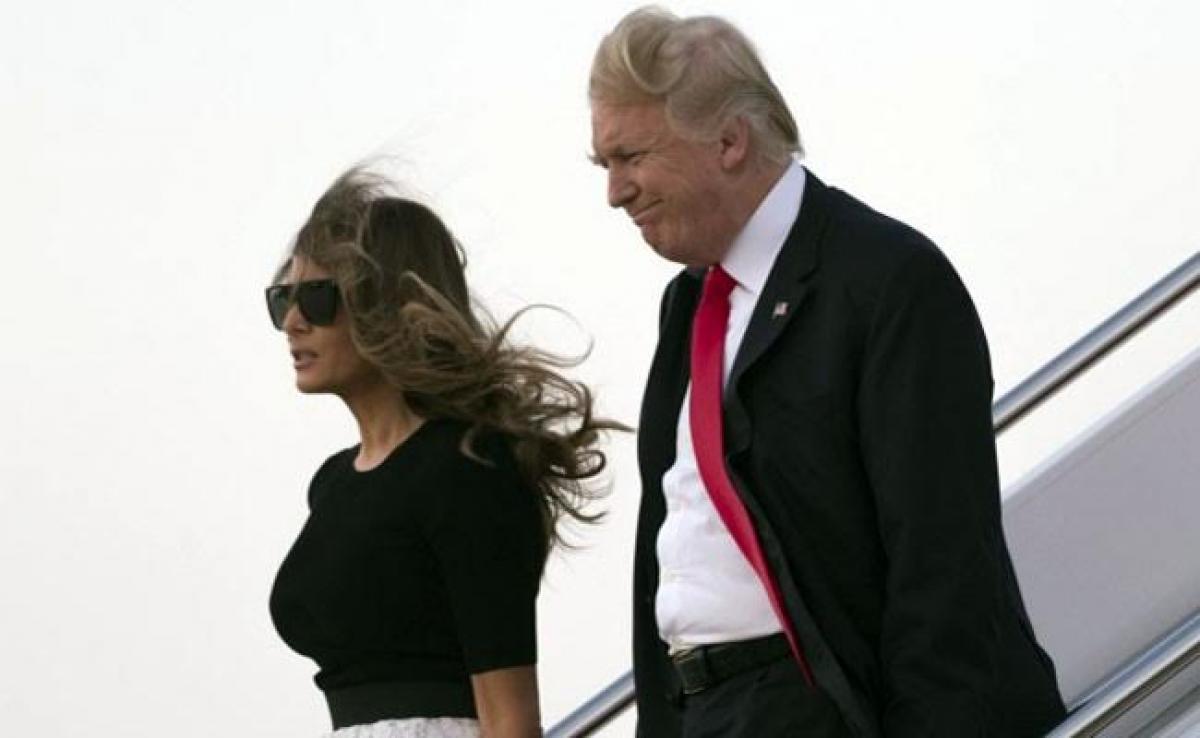Live
- Pokémon TCG Pocket to Introduce Card Trading in January 2025
- Nani unveils ‘MM 2’ title & first look
- Will challenge bail granted to actor Darshan in fan murder case in SC: Bengaluru Police Commissioner
- Chandrahass Launches Maruti Suzuki Dzire Through PJ Productions in Tolichowki Showroom
- Police case against farmers for tilling land claimed by Waqf Board in Karnataka
- Commendable move: Sandeep Dikshit on renaming Sarai Kale Khan ISBT chowk after Birsa Munda
- MahaYuti will come back to power with a thumping majority despite Oppn's tirade: Eknath Shinde
- ‘Hanging up my racquet. Thank you’ - India’s Prajnesh Gunneswaran retires from professional tennis
- Pawan Kalyan to Campaign for NDA Alliance in Maharashtra
- Eight killed, five injured in Nepal's traffic accident
Just In

During a difficult visit to Europe Donald Trump appeared out of sync with traditional allies, struggling to show that unorthodox strategies toward rival powers Russia and China can deliver results.
During a difficult visit to Europe Donald Trump appeared out of sync with traditional allies, struggling to show that unorthodox strategies toward rival powers Russia and China can deliver results.
At one point Canadian Prime Minister Justin Trudeau and German Chancellor Angela Merkel exchanged a knowing glance as the US president veered off on another tangent.
What were to be remarks about women entrepreneurs had become a Trumpian soliloquy on his daughter Ivanka's merits and his paternal failings.
"If she weren't my daughter it would be so much easier for her," Trump said. "It might be the only bad thing going for her."
A few feet away, Merkel and Trudeau's nervy laughs were corporal acknowledgment that Trump's political peers are still unsure how to take the mercurial 71-year-old.
Throughout the meeting there was a sense the president of the United States, leader of the so-called "indispensable nation," has shifted positions, leaving everyone else struggling to correct.
Start With Friends
In Warsaw, on the first stop of his four day trip, Trump sought to reassert his claim to lead the free world.
Like a king riding along the cavalry frontline, he sounded the charge against terrorism and bureaucracy, which he painted as threats to Christian civilization.
He embraced allies by affirming his commitment to NATO's mutual defense clause, satisfying long-standing demands to be clearer about the alliance.
But for many, Trump's idea of the West as a group of nations that "cry out 'We want God'" -- a West of high borders and fierce nationalism -- seemed out of kilter with the times.
"It is no accident that he gave this speech to a country with an ultra-conservative and Eurosceptic government," said Thomas Wright of the Brookings Institution.
"The great risk," Wright added, is that Trump's remarks "begin dividing Europe into old and new -- or those who don't like him and his message and those who do."
Trump's claim to be the guardian of Western values was further undermined by a press conference that saw sustained attacks on the free press and a downplaying of Russia's election interference.
Time To Move On
Later at the G20 in Hamburg, Trump appeared even more clearly outside the policy mainstream.
The artful drafting of a joint communique saw world leaders banding together without the United States: in the fight against climate change, it was 19 in favor and a lone Trump against.
"To get 20 of your friends to agree where to have dinner together tonight is really hard," said top Trump economic advisor Gary Cohn, denying US isolation.
Trump's efforts to reset relations with global rivals were equally vexed.
During a historic two-hour-and-sixteen-minute meeting with Vladimir Putin, the US president effectively agreed to put Russia's 2016 election interference in the past -- a major concession to Moscow.
"After very substantive dialogue on this, they agreed to move on to other discussions," said Treasury Secretary Steve Mnuchin.
But that bought few tangible benefits beyond a possible ceasefire agreement for southern Syria.
Officials are hopeful the measure, effective from noon Sunday, can stem the bloodletting and open the door for a broader cooling of the vicious six-year civil war -- but such ceasefires have come and gone many times before.
For months, negotiators in Amman had been searching for something much more durable: a safe zone, enforced by troops, which would secure Jordan's border and allow the regime's opponents their own territory.
That prospect still seems distant.
"The best possible outcome is that this 'agreement' becomes a building block for more US-Russian cooperation in Syria," Cliff Kupchan of Eurasia group told clients in a research note.
"But the emerging truce also faces significant obstacles, and its fate is unclear at best."
On North Korea, Trump appeared unable to translate weeks of sustained public pressure and angry tweets on China into meaningful diplomatic progress.
Across the table from Trump, Xi Jinping offered little indication he would impose the type of sanctions that could make Pyongyang think twice about developing ever-more powerful long range nuclear missiles.
Trump was left to abandon his own sense of urgency.
"It may take longer than I like, it may take longer than you'd like... but there will be success in the end, one way or the other," he said.
With his ideological hardline and diplomacy failing to live up to his "winning" rhetoric, Trump's second foreign visit left "America first" at risk of becoming "America alone."

© 2024 Hyderabad Media House Limited/The Hans India. All rights reserved. Powered by hocalwire.com







